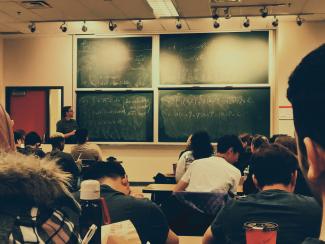The GPO
In simple terms, the Government Pension Offset (GPO) is a rule that affects people who receive a pension from a government job that did not require them to pay into Social Security. Still, they are also eligible for claiming Social Security spousal or survivor benefits based on their spouse’s or divorced spouse's earnings.
The GPO reduces the Social Security spousal or survivor benefits by equal to two-thirds of the government pension. The purpose of the GPO is to offset the advantages some individuals might gain by receiving a government pension from a job not covered by Social Security and Social Security benefits based on their spouse’s or ex-spouse’s work record.
In essence, the GPO is meant to prevent what might be seen as a “double dipping” scenario, where individuals could receive both a government pension and full Social Security retirement benefits based on their spouse’s or ex-spouse’s earnings. The GPO adjusts the Social Security benefits to account for the government pension, reducing the overall amount an individual can receive.
Next, we will discuss WEP and GPO "loopholes" for Texas Teachers.
WEP Loopholes1
1) Continue to work and pay into Social Security: To reduce the WEP penalty, you can try working more years with good earnings. The penalty begins to decrease after you’ve had 21 years of good earnings and disappears completely after 30 years. For instance, if someone worked as a community college instructor for 20 years in a job covered by Social Security and then started teaching at a public school (which wasn’t covered by Social Security), they might be able to work part-time for another ten years before retiring. This extra work could eliminate the monthly WEP reduction by reaching the 30-year threshold for good earnings.
2) Mixed Earnings and Employment: Some Texas school districts have arrangements with Social Security agreements so that they can be a part of both Social Security and their pension plans. The WEP still matters if you earned money in different ways, and Social Security benefits can only be lowered by a maximum of half of the pension from non-Social Security work. Suppose part of the pension comes from work that does count for Social Security. In that case, the non-Social Security pension is calculated based on the proportion of time spent at the non-Social Security school district.
GPO Loopholes2
1) Last 60-Month Rule: In simple terms, the “last 60-month rule” related to the Government Pension Offset (GPO) is a special provision that looks at the final five years (60 months) of your employment before retirement. If you worked in a government job where you didn’t pay Social Security taxes but then switched to a job where you did pay Social Security taxes during these last 60 months, the GPO reduction on your Social Security benefits might be lessened or not apply. Covered employment during at least one day in a given month constitutes a month of service to meet the 60-month requirement.
2) Withdrawal from the Pension: You can potentially reduce the GPO penalty for an employee to completely withdraw from their pension plan. The employee’s withdrawal of their contributions and interest generally results in a forfeiture of future rights to the pension altogether, potentially giving up a lifetime of accumulated benefits. However, separating from service and rollover the accumulated pension amount to a 401(k) as a lump sum could potentially avoid the GPO.
Seeking Professional Guidance
Navigating Social Security as a Texas teacher involves understanding the TRS’s rules, potential loopholes, and implications. Given the complexity of Social Security regulations, consulting with a financial advisor and the Social Security Administration who can provide personalized guidance based on your situation is highly advisable.
Conclusion
While the Social Security landscape for Texas teachers may present challenges, there are aspects to explore that could impact your benefits positively. From Social Security agreements to understanding the GPO and WEP, taking a proactive approach to retirement planning can help Texas teachers make informed decisions. By staying informed and seeking professional advice, educators can optimize their retirement strategies and secure a more comfortable financial future. Contact me on the contact page below if you want to help with retirement planning.
1. https://www.kitces.com/blog/navigating-social-securitys-windfall-elimination-provision-wep-with-a-non-covered-government-pension/
2. https://www.kitces.com/blog/government-pension-offset-gpo-social-security-non-covered-pension-spousal-survivor-benefits/
*This content is developed from sources believed to be providing accurate information. The information provided is not written or intended as tax or legal advice and may not be relied on to avoid any Federal Government tax penalties. Individuals are encouraged to seek advice from their own tax or legal counsel. Individuals involved in the estate planning process should work with an estate planning team, including their own personal legal or tax counsel. Neither the information presented nor any opinion expressed constitutes a representation of a specific investment or the purchase or sale of any securities. Asset allocation and diversification do not ensure a profit or protect against loss in declining markets.





